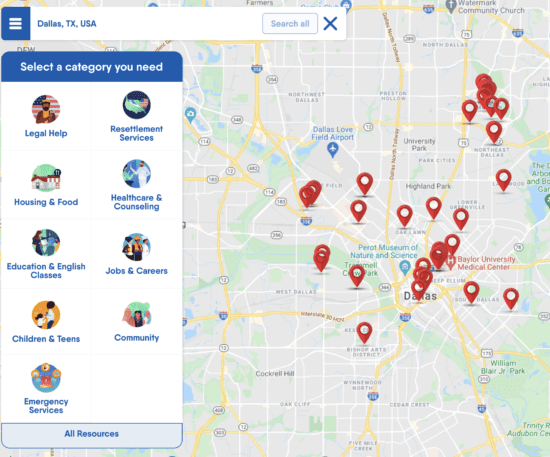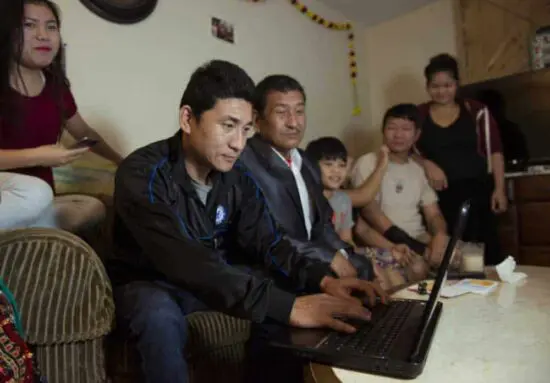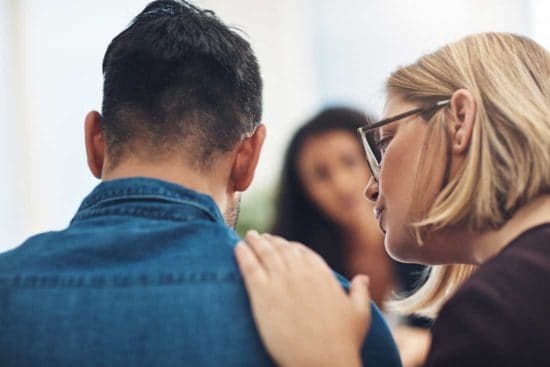Know your basic rights
Everyone has basic rights in the USA, even if you are not a citizen or permanent resident. These include the right to speak freely, meet peacefully, to be safe and treated equally, and to have privacy.
Discrimination is illegal in all areas of life, including housing, workplaces, schools, hospitals, and businesses. No one should mistreat you because of your:
- Age
- Disability
- National origin
- Race and color
- Religion or faith
- Gender identity
- Sexual orientation
However, recent policy changes and increased immigration enforcement make it hard for some immigrants, especially those without legal status, to use their rights.
Rights with police, CBP, and ICE
You have rights when dealing with law enforcement officers. This includes police, Customs and Border Protection (CBP), and Immigration and Customs Enforcement (ICE).
Officers may briefly hold and question you if they suspect you were involved in a crime. They cannot detain or arrest you without evidence that shows you may have broken the law. They are not allowed to use physical or verbal abuse, intimidation tactics, or threats against you. Learn more about what to do if are stopped or arrested by police.
CBP operates along the border and at airports, while ICE may conduct raids at homes or workplaces. See our guide on how to prepare for ICE to learn about your rights, what to expect, and how to create a safety plan.
Right to remain silent
If police or immigration authorities question you about your immigration status or anything else, you have the right to remain silent. You do not have to answer their questions or sign any documents without a lawyer present.
You can simply say “I do not wish to answer any questions without my lawyer present.” Law enforcement cannot force you to answer questions or punish you for refusing to speak.
Right to privacy
Police must have a warrant signed by a judge giving permission to search you, your phone, your car, or your home. If law enforcement comes to your home, you can talk through the door. Always ask to see their warrant. If they do, they are allowed to search the area specified, but you still have the right to remain silent and contact a lawyer immediately.
Right to fair treatment
If immigration authorities, such as ICE, try to detain or deport you, you have the right to a hearing before an immigration judge. If you are in expedited removal proceedings, you have the right to a credible fear interview and can apply for asylum.
Right to a lawyer
You have the right to a lawyer during any interaction with police. It is important not to answer questions or sign documents without understanding them or talking to a lawyer.
You also have the right to have a lawyer represent you in immigration proceedings. The government must provide you with information about free or low-cost legal services.
Learn how to find legal help.
Rights in detention
If you are arrested or detained in a criminal jail, prison, or immigration detention facility, you have the right to legal help and a fair hearing to present your case. You also have the right to basic necessities and medical care.
You cannot be detained indefinitely. There are limits on how long immigration authorities can hold you in detention. If you are at the border, you also have the right to ask for asylum.
Learn more about what to expect while detained.
Rights of domestic violence victims
If you are experiencing violence at home by someone you live with, a family member, or a spouse, you have rights. Anyone who experiences domestic abuse has the right to help from law enforcement and access emergency shelter, medical care, and counseling.
Learn more about domestic violence and humanitarian programs that protect survivors such as U Visa and VAWA.
Right to safe housing
You have the right to live in a safe and healthy home. Your home should be free from issues like toxic mold, roof leaks, or pest infestations.
If you have a disability, you can ask for reasonable changes in your rental home. Housing providers must accommodate people with disabilities.
Landlords also cannot refuse to rent to you or charge you more because of your immigration status.
Learn more about finding a place to live.
Right to a safe and fair workplace
You have the right to a safe and healthy workplace, free from harmful chemicals and unsafe equipment. You must be paid at least the minimum wage set by state and national laws.
Your workplace should be free from discrimination and exploitation. Your employer cannot pay you less, deny you a promotion, or fire you just because you are an immigrant. You also have the right to speak up about unsafe conditions without fear of punishment or losing your job.
Undocumented workers have these rights too, though they may face challenges using them. You can get help from local worker organizations and some government agencies without revealing your immigration status. These groups can provide support and guidance.
Learn more about your rights at work and getting a work permit.
Right to free education
All children have the right to receive free public education to get a high school diploma in the United States. This includes elementary and secondary schooling.
Schools cannot treat you unfairly because of your race or ethnic group.
Learn more about immigrant student’s rights and laws.
Right to emergency medical care
You have the right to receive emergency medical care, even if you do not have health insurance. Hospitals and clinics are required by law to provide emergency treatment to anyone who needs it, regardless of immigration status or ability to pay. You do not have to share your immigration status even if someone asks. Healthcare providers cannot deny medical treatment if you choose not to share.
Learn more about going to the doctor.
Right to a safe community
Everyone deserves to live in a safe community. If you feel threatened or are in danger, remember you have the right to seek help. The police and other organizations in your community can help you during an emergency or if you are facing a threat.
Learn more about responding to threats.
Right to translation help
You have the right to free translation help in your language with most U.S. government services. If you do not speak English fluently, you can ask for help. These offices cannot refuse to provide you with services because of your language.
Learn how to find free translation help.
Rights to public benefits and services
If you need help paying for expenses like food and housing, you may be able to get public benefits depending on your immigration status. Check your state social service agencies for more information.
You can also get free or low-cost food, shelter, transportation, and emergency help in your community. You can get this type of support even if you are undocumented.
Learn more about public benefits.
Right to travel
You have the right to travel freely within the USA. You can move across states and cities and choose where to live. It is important to carry proper identification and follow local laws when you travel.
If you plan to travel abroad, you may need a travel document to return to the USA. This is based on your immigration status. It is important to check with an immigration legal representative before you travel if you have a pending application.
Learn more about getting a travel document.
Right to apply for immigration benefits
You have the right to apply for programs that allow you to live and work in the USA legally. If you are in the United States legally, you can apply for a Green Card to live and work in the USA permanently and later apply to become a U.S. citizen.
There are also humanitarian programs that help people from countries experiencing disasters, persecution, or other urgent situations. This includes the right to seek asylum at the U.S. and Mexico border. Additionally, Temporary Protected Status (TPS) is available for people from specific countries. You can apply for these programs even if you do not have legal immigration status.
Learn more about applying for asylum and TPS.
Right to reunite with family
There are different programs in the United States to help bring your family here to join you. These programs allow you to apply for visas for certain family members.
Learn more about family immigration for green card holders and family reunification for refugees and asylees.
Report violations and abuse
If you believe your rights have been violated, you can report it to local law enforcement. Police cannot ask about your immigration status or turn you into immigration authorities for reporting a crime. You can also contact a trusted friend, immigration lawyer, resettlement office, or community organization if you are not comfortable calling the police.

Find legal help, English classes, health clinics, housing support, and more. Search a local map and list of services for immigrants in the USA with the app FindHello.
The information on this page comes from ACLU, USCIS, and other trusted sources. We aim to offer easy to understand information that is updated regularly. This information is not legal advice.










